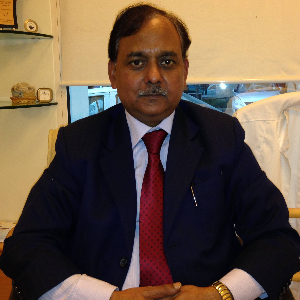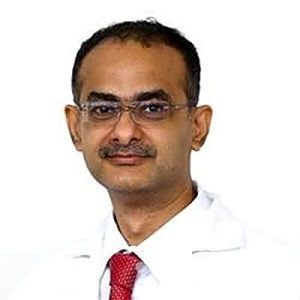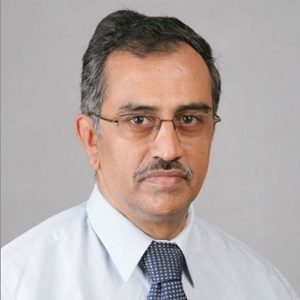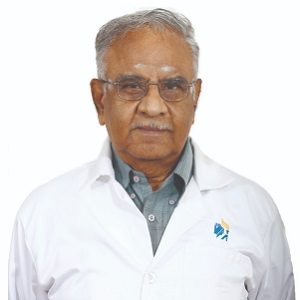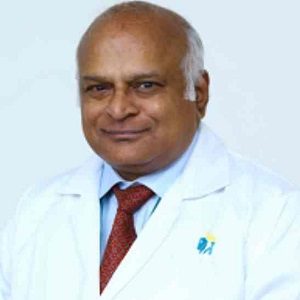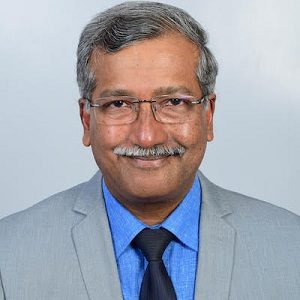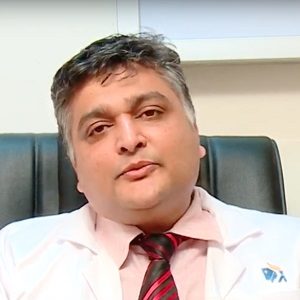Best Doctors in India for Vasectomy
- Urologist, New Delhi, India
- Over 20 years’ experience
Profile Highlights:
- Dr. Sanjay Gogoi is a renowned Urologist with over 20 years of experience, He is an expert in minimally invasive transplant techniques of Laparoscopic and Robotic-Assisted Transplantation.
- He is also trained in Robotic surgery at da Vinci Training Center, Intuitive Surgical, California. With over six years of experience in doing Robotic Cancer surgeries on the Kidney, Bladder, Prostate, Adrenal, etc., Dr. Sanjay Gogoi is an expert in Robotic reconstructive procedures of kidneys, ureters, and bladder, as well, as in adults as well as pediatric patients.
- Urologist, New Delhi, India
- Over 35 years’ experience
Profile Highlights:
- Dr. Anant Kumar is one of the finest urology and kidney transplant doctors in India.
- Dr. Kumar specializes in Kidney Transplantation, Robotic Assisted Laparoscopic Urology, Renovascular Hypertension, Laparoscopic Urology, Urological Oncology, Laser Urological Surgery, and Reconstructive Urology.
- He has performed over 3500 kidney transplants and over 2000 lap donor nephrectomy procedures over the span of 3 decades.
- Nephrologist, Gurugram, India
- Over 15 years’ experience
Profile Highlights:
- Known as one of the best nephrologists in the NCR region, Dr. Manish Jain holds a special interest in renal transplants as well as clinical nephrology.
- His compassionate patient care and lifestyle advocacy have helped patients recover from various disorders.
- Throughout his career, Dr. Manish Jain has published several papers in India and is also a member of several medical associations.
- Urologist, Chennai, India
- Over 15 years’ experience
Profile Highlights:
- Dr. Deepak Raghavan is a renowned urologist who has gained immense fame and praise in the few years of his career.
- He is specially trained in Robotic Surgery, the need of the hour for Urology patients.
- Pediatric Urologist, Chennai, India
- Over 25 years’ experience
Profile Highlights:
- Dr. Sripathi is a renowned surgeon with 25 years of experience in the field of Pediatric Urology.
- Dr. V Sripathi qualified for the award of the “Fellowship of the Royal Australasian College of Surgeons” (FRACS) after working in Perth and Melbourne, Australia.
- He completed his Pediatric Urology training with a brief stint at the King Faisal Specialist Hospital & Research Center in Riyadh, specializing in advanced Reconstructive Urology.
- Urologist, Chennai, India
- Over 45 years’ experience
Profile Highlights:
- Dr. Duraisamy S is one of the best Urology surgeons and General physicians in South India with more than 45 years of experience.
- Dr. Duraisamy considers his profession a special mission, a devotion that calls for involvement, respect, and willingness to help others.
- He published several papers on UTI, uterovaginal fistula, ureteric diverticulum, and Endoscopy in reputed medical periodicals.
- Urologist, Chennai, India
- Over 39 years’ experience
Profile Highlights:
- Dr. Murali Venkatraman is a Senior Urologist from India with vast experience.
- Being a fellowship holder in Laparoscopic Urology, he specializes in Laparoscopic Urology.
- Dr. Venkataraman is serving for the last 39 years and has received many awards and recognitions for his contribution.
- Urologist, Chennai, India
- Over 37 years’ experience
Profile Highlights:
- Dr. Thirumalai Ganesan Govindasamy is a well-known Urologist of India.
- He has interests and specializations in Laparoscopic and Robotic Urology, Robotic and Laparoscopic Donor Nephrectomy, Urethral Reconstructive Surgery, Per-cutaneous Nephrolithotomy, and Flexible Ureteroscopy.
- Serving his patients for almost 37 years, Dr. Govindasamy has gained enough recognition and trust from his patients and has cured many people of severe illnesses.
- Urologist, Chennai, India
- Over 21 years’ experience
Profile Highlights:
- Dr. Nitesh Jain is an experienced urologist in Tamil Nadu, having managed complex urological diseases.
- Dr. Nitesh has grabbed a gold medal in Surgery during MBBS and M.Ch Urology.
- Dr. Nitesh Jain also got training in robotic surgery from Roswell Park Cancer Institute, Buffalo, USA.
Best Hospitals in India for Vasectomy
Fortis Hiranandani Hospital, Mumbai
- City: Mumbai, India
Hospital Highlights:
- Fortis Hiranandani hospital was established in 2007.
- The hospital is an advanced tertiary care, multi-specialty hospital equipped with 149 beds.
- The hospital is equipped with a super ICU to provide emergency medical care to critically ill patients.
- The hospital is NABH accredited.
- The critical care facility in the hospital is augmented with the state-of-the-art facilities that facilitate speedier diagnosis and efficient monitoring.
- The hospital provides specialty medical services in cardiology, orthopedic science, pediatric science, neurology, diabetic care, urology, nephrology, ENT, obstetrics, gynecology, cosmetic surgery, bariatric surgery, neuro and spine care.
Fortis Hospital, Anandpur, Kolkata
- City: Kolkata, India
Hospital Highlights:
- Fortis Hospital, Anandapur, Kolkata is a world-class super-speciality equipped with the latest technologies in the medical world.
- The hospital is NABH accredited.
- This state-of-the-art facility specializes in cardiology and cardiac surgery, urology, nephrology, neurosciences, orthopaedics, digestive care, emergency care and critical care.
- The hospital, governed by integrated Building Management System (IBMS), has a pneumatic chute system, for quick vertical and horizontal transportation between floors, facilitating speedy transfer of patient specimens, documents, reports, and medicines to the concerned departments.
- The hospital also has a nephrology department with over 28 advanced dialysis units.
Fortis Hospital Banerghatta, Bengaluru
- City: Bengaluru, India
Hospital Highlights:
- Fortis Hospital Bannerghatta, Bengaluru was established in 2006.
- The hospital is a 276 bedded multi-specialty tertiary care facility.
- The hospital specializes in cutting-edge medical technology and dedicated patient care services.
- The hospital is equipped with state-of-the-art technologies like trans-radial angioplasty, trans-abdominal cardiac surgery, and computerized TKR navigation surgery.
- The hospital provides specialty medical services in cardiology, cardiac surgery, orthopedics, neurology, neuro-surgery, GI, and Minimal Access Surgery (MAS).
Fortis Hospital, Malar, Chennai
- City: Chennai, India
Hospital Highlights:
- Fortis Malar was established in 1992 and was formerly known as Malar Hospital.
- The hospital specializes in cutting-edge medical technology and dedicated patient care services.
- The hospital is multi-specialty, tertiary care facility with 180 beds.
- The hospital offers comprehensive medical care in specialties such as cardiology, cardio-thoracic surgery, neurology, neurosurgery, orthopedics, nephrology, gynecology, gastroenterology, urology, pediatrics, and diabetes.
Gleneagles Global Hospital, Parel, Mumbai
- City: Mumbai, India
Hospital Highlights:
- Gleneagles Global Hospital The 450-bed facility comprises of 17-stories, housing state-of-the-art infrastructure, and advanced medical care facilities.
- The hospital offers end-to-end clinical, surgical, and diagnostic services. It is equipped with a team of eminent medical professionals aided by qualified nurses and medical staff
- The Hospital offers advanced Endoscopic procedures, Hepatobiliary and Liver Surgeries, Surgical and Medical Gastroenterology, Bariatric Surgery, and Robotic surgery.
- The hospital is a center of excellence for Orthopedics, Joint Replacement, Knee Replacement, and Hip Replacement surgery.
Manipal Hospital, Dwarka, Delhi
- City: New Delhi, India
Hospital Highlights:
- Manipal Hospitals, Dwarka, is a super-specialty hospital in Dwarka, New Delhi, which is a part of Manipal Hospitals Group.
- The hospital aims to provide the best treatment on par with international standards at a fraction of the cost.
- Equipped with 380 beds, the hospital is also one of the new age hospitals which are equipped fully with state-of-the-art infrastructure, cutting-edge technology as well as the latest and advanced clinical practices. The hospital also has 13 modular Operation theatres with 118 beds which are solely meant for critical care.
- The hospital comprises internationally acclaimed doctors and highly professional and experienced hospital and medical staff who are able to provide preventive, therapeutic, and diagnostic services all under one roof.
Paras Hospital, Gurugram
- City: Gurugram, India
Hospital Highlights:
- Paras hospital was established in 2006 and is the 250 bedded flagship hospital of Paras Healthcare.
- The is supported by a team of doctors of international and national repute.
- The hospital is NABH accredited and also the first hospital in the region to have a NABL accredited laboratory.
- The hospital provides specialty medical services in around 55 departments including Neurosciences, Joint Replacement, Mother & Child Care, Minimal Invasive Surgery, Gynecology and Obstetrics, Ophthalmology, Dermatology, Endocrinology, Rheumatology, Cosmetic and Plastic surgery.
- The hospital is equipped with state-of-the-art technologies.
S L Raheja Hospital, Mahim, Mumbai
- City: Mumbai, India
Hospital Highlights:
- SL Raheja hospital is a 140-bed multi-specialty tertiary care hospital that is being managed by Fortis Healthcare Ltd.
- The hospital is a benchmark in healthcare and medical facilities in the neighborhood of Mahim & the western suburbs.
- L.Raheja Hospital, Mahim has one of the most effective ICU and Casualty care services.
- The hospital provides specialty medical services in Cardiology, Oncology, Neurology, Orthopedics, Mother & Child Care, and in Diabetes.
Wockhardt Hospitals, Mumbai
- City: Mumbai, India
Hospital Highlights:
- Wockhardt Hospitals were established in the year 1973, originally called First Hospitals and Heart Institute.
- Wockhardt Hospitals are super specialty health care networks in India, nurtured by Wockhardt Ltd, India’s 5th largest Pharmaceutical and Healthcare company.
- Wockhardt Hospitals is associated with Partners Harvard Medical International, an international arm of Harvard Medical School, USA.
- Wockhardt Heart Hospital performed India’s first endoscopic heart surgery.
- The hospital has a state-of-the-art infrastructure equipped with the latest technologies and modern equipment.
- It has special Centers of Excellence dedicated to the major specialties to provide hassle-free and high-quality clinical care.
Pushpawati Singhania Hospital & Research Institute, New Delhi
- City: New Delhi, India
Hospital Highlights:
- Established in 1996, Pushpawati Singhania Research Institute is one of the top hospitals in the NCR region, as well as one of the top facilities in India for gastroenterology. The hospital is one of South Asia’s first institutes in medical and surgical treatment for diseases related to digestion.
- The hospital is equipped with state-of-the art facilities coupled with the latest equipment as well as renowned consultants from various parts of India as well as other parts of the world.
Vasectomy
Vasectomy is a small operation a man can get to prevent sperm from getting into his semen when he ejaculates. When no sperm enters a woman, this prevents pregnancy. However, one is still able to ejaculate and have an orgasm after the procedure. This procedure is considered a form of birth control and is known to be one of the most effective methods.
Theoretically vasectomy is reversible. However, it doesn’t always work. Therefore, one should only consider this operation when he is sure that he doesn’t want to have any/more children. This procedure is also known as male sterilization.
Purpose
Since a vasectomy is an effective and permanent way to prevent pregnancies, it is preferred by men, who are certain that they will not want children. Men who undergo this procedure, don’t need to take birth control steps such as putting on a condom before having sexual intercourse.
Vasectomy doesn’t have any lasting affects on one’s sexual performance.
Compared to female sterilization, vasectomies are easier and less expensive. For couples who have decided not to have children, it is recommended to discuss their options with a doctor.
Preparation
If you are in a relationship, you need to discuss with your partner and how she feel about this decision. Also discuss with your doctor regarding any other forms of birth control available for you.
Vasectomy is generally performed by urologists, but sometimes they are also performed by family medicine or general medicine practitioners. The procedure is generally done at a doctor’s office or sometimes at a surgery center.
A few days before the procedure, you might need to stop taking certain medications such as aspirin as well as blood-thinning medications. On the day of the procedure, it is very important for you to take a shower. Make sure to wash the genital area properly.
Procedure
The surgery shouldn’t generally take over 30 minutes. First your doctor numbs the surgery area using a local anesthetic. Then he/she makes an incision in the upper part of your scrotum after the area is numb. Or if he/she is using the no-scalpel technique, then a puncture will be made instead of an incision.
Then your doctor will locate the tube that carries semen from your testicle, which is termed as vas deferens. Then part of the vas deferens will be withdrawn through the incision or puncture. Then the vas deferens will be cut where it has been pulled out of the scrotum. It will be then sealed with the use of surgical clips, heating or any other method. Then your doctor will return the ends of the vas deferens back to your scrotum.
After this, the incision will be closed. Glue or stitches might be used; but in some cases, the wound may be left to close on its own over time.
Recovery
After you reach home, you need to rest for a minimum of 24 hours. Within less than a week you should recover completely.
Although you might feel sore for some days, you can try treating the swelling and the pain with an ice pack. You can choose to wear a jockstrap as well for support.
Give it a few days before you have sexual intercourse again. Until a test shows that your semen is free of sperm, it is recommended that you still use birth control. This test can be performed after you have had 10-20 ejaculations after your vasectomy.
If results show that there is still sperm left in your semen, then your doctor will be asking you to come later to take the test again.
Risks
A potential concern with vasectomy is that sometimes a person can change his mind about wanting to father a child. Although reversing a vasectomy is possible, there is no guarantee that it will work. Reversal surgery is not only more complicated and expensive, but in some cases, it also turns out to be effective.
Though other techniques such as in vitro fertilization can allow a person to father a child even after a vasectomy, usually these techniques are quite expensive and not always effective.
Therefore, before you go through a vasectomy, you need to be certain that you don’t want a child in the future.
For most men, there usually aren’t any noticeable side effects. Serious complications occur quite rarely.
Few side effects that may occur include:
- Bleeding or a blood clot (hematoma) inside your scrotum
- Blood in your semen
- Infection at the surgery site
- Bruising of your scrotum
- Swelling
- Mild pain or discomfort
Sometimes, there might be delayed complications which can can include:
- Chronic pain
- Fluid buildup in the testicle, which can cause a dull ache which can get worse with ejaculation
- Pregnancy, in the event that the vasectomy fails, although this is rare
- Inflammation caused by leaking sperm (granuloma).
It is also notable that although vasectomy is an effective method of birth control, it will not protect you and your partner from sexually transmitted diseases such as HIV/AIDS. Therefore you might want to consider using protections such as a condom during intercourse, even after you undergo a vasectomy.


